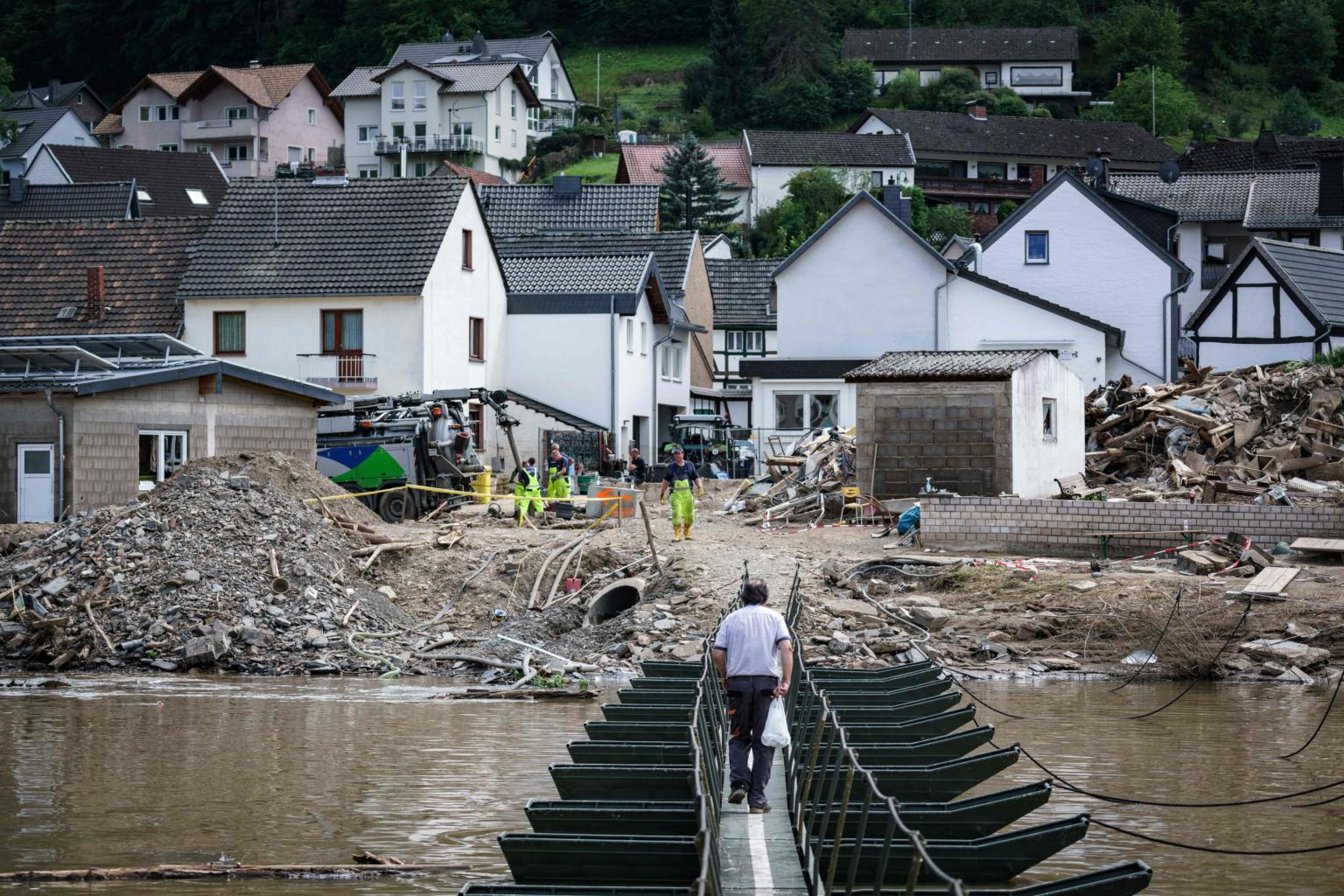Climate change contributed to Europe's deadly floods, scientists find
Sign up now: Get ST's newsletters delivered to your inbox

Researchers found warming had increased the intensity of precipitation of such a heavy rainfall by 3 per cent to 19 per cent.
PHOTO: AFP
Follow topic:
NEW YORK (NYTIMES) - The violent and deadly flooding in Germany and Belgium last month was an extremely rare event, scientists said on Monday (Aug 23), but one that was made more likely by climate change.
The scientists found that the record rainfall that led to the flooding, including a 24-hour total of 3.5 inches (8.9cm) in the Ahr and Erft river valleys in western Germany, was a 400-year event, meaning in any given year there was a 1-in-400 chance of such a downpour occurring in the region.
But the analysis showed that while rare, such an event was 1.2 to 9 times more likely now than it would have been more than a century ago, before emissions of heat-trapping gases warmed the world by more than 1 degree Celsius (about 2 degrees Fahrenheit).
And if the world warms to 2 degrees Celsius, as is likely without drastic cuts in emissions, the probability of such an event would increase even more, becoming 1.2 to 1.4 times as likely.
"It's still a rare event," said Maarten van Aalst, director of the International Red Cross/Red Crescent Climate Centre, who contributed to the research. "But it is an event we should be increasingly prepared for."
The researchers found warming had increased the intensity, or amount of precipitation, of such a heavy rainfall by 3 per cent to 19 per cent. At 2 degrees Celsius, the intensity would increase another 0.8 per cent to 6 per cent.
Both findings are in keeping with a fact of climate change: Warmer air holds more moisture.
The heavy rains in mid-July caused floodwaters to surge through river valleys in north-central Europe, carving up villages and leaving destruction and death behind. More than 220 people were killed.
During the flooding, the peak flow of the relatively small Ahr River was closer to that of the Rhine, one of Europe's largest.
"You had a huge river for a short amount of time rushing through the valley of the Ahr," said Enno Nilson, of the German Federal Institute of Hydrology, who was also part of the research team.

